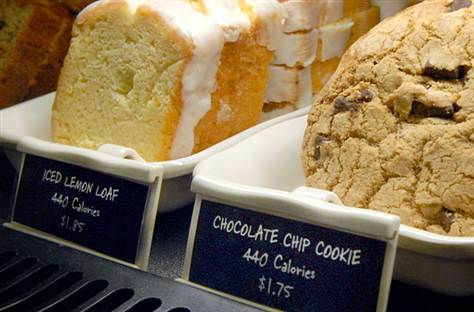But do those trying to frame this debate as being about rights, freedom of choice and individual liberty really have consumers' best interests at heart?
My constitutional right to have unfettered access to cheesy fries and soda
Now I understand beverage manufacturers’ frustration at becoming the food industry’s whipping boy and an easy target for those looking for someone to blame for the obesity crisis.
I also respect the need to base regulatory decisions on hard data, and can see why critics of the NYC ban argue it's arbitrary as drinks banned in a restaurant can be served in a grocery store next door.
But I am not wholly convinced by the argument that any measure designed to restrict my inalienable right to knock back a Big Gulp is an unacceptable assault on my freedom.
Not least because I strongly suspect that arguments about our rights to have unfettered access to unlimited quantities of cheesy fries and soda are motivated more by the pressure on large corporations to meet shareholders' expectations than a genuine concern about an erosion of personal liberty.
Frustration will fade as consumers adjust to the new serving sizes
Indeed, big brands have always sought to convince us that by purchasing their mass-produced wares we are expressing our individuality and freedom of choice, although it’s hard to argue that buying a large Coke is a bold expression of individualism.
And as we are encouraged by large corporations to fight for our rights as consumers to eat Big Gulps and Big Macs, are we - ironically - losing sight of the fact that more fundamental human rights, such as the right to health, may be eroded as a result?
On a more practical note, if being unable to buy a soda larger than 16oz when going to the movies in NYC proves frustrating to some if Bloomberg’s ban comes into force, I suspect that this will fade as consumers adjust to the new serving sizes.
You start to wonder whether the odds are stacked against us

If you pursue the argument espoused by critics of attempts to restrict access to so-called 'junk' foods to its ultimate conclusion (it’s not the role of government to stop people making choices that could damage their health, or restrict the sale of something that if consumed in moderation, is not harmful), it’s pretty persuasive of course.
We’re all grown-ups after all. Indeed, most of us feel we only have ourselves to blame if we are overweight. We made poor choices and couldn’t keep our energy intake and expenditure in balance.
But when two thirds of the population is unable to achieve this balance, yet at the same time would not choose to be overweight (obesity still carries a social stigma and medical risks, regardless of how ubiquitous it is), you start to wonder whether the odds are stacked against us.
Consider how much self-discipline you have to exert every single day just to match calories in with calories out
If you are in any doubt about how difficult it is to achieve this balance, try eating out tonight and see how hard it is to find an entrée that doesn’t supply the bulk of your energy needs for the entire day in one sitting.
Or reflect on how much self-discipline you have to exert every single day just to match calories in with calories out - a calculation that our grandparents didn’t even have to think about.
Alternatively, spend the evening staring at a box of chocolates, and see how much effort it takes just to eat one, and put the rest back in the cupboard.
Instinctively, none of us wants politicians to tell us what we can and can’t eat

Instinctively, none of us wants politicians to tell us what we can and can’t eat.
But are small interventions designed to alter the food environment such that achieving this energy balance is ever so slightly easier, really so unpalatable?
Is education the answer?
The food industry’s solution to the challenge is eminently reasonable: Education. They give us the information we need to make informed choices, and trust us to make our own decisions.
But this takes time, and willpower, and both are in short supply given the scale of the problem, and the fact that every day we face the equivalent of that box of chocolates each time we walk down the street, visit a shopping mall, switch on the TV or walk past a vending machine.
As Marion Nestle, professor in the department of nutrition, food studies and public health at New York University, wrote in her foodpolitics blog on the ban last year, knowledge is power, but it doesn’t trump everything else:
"Barrage us with advertising, put food within arm’s reach, make food available 24/7, make it cheap, and serve it in enormous portions. Faced with this kind of food environment, education doesn’t stand a chance."
